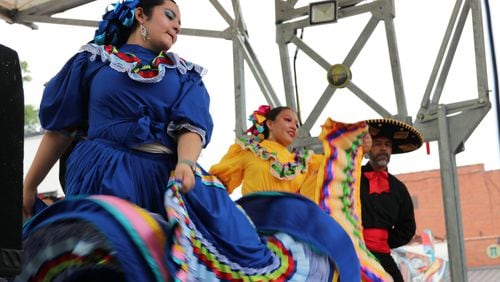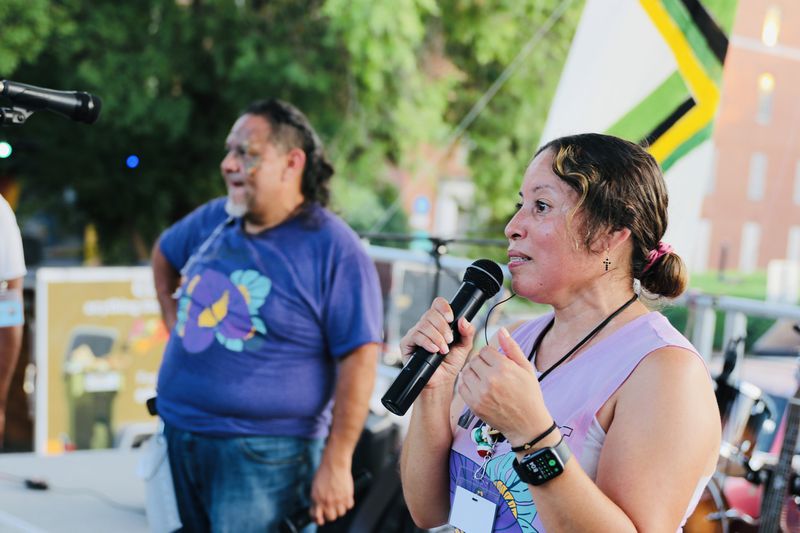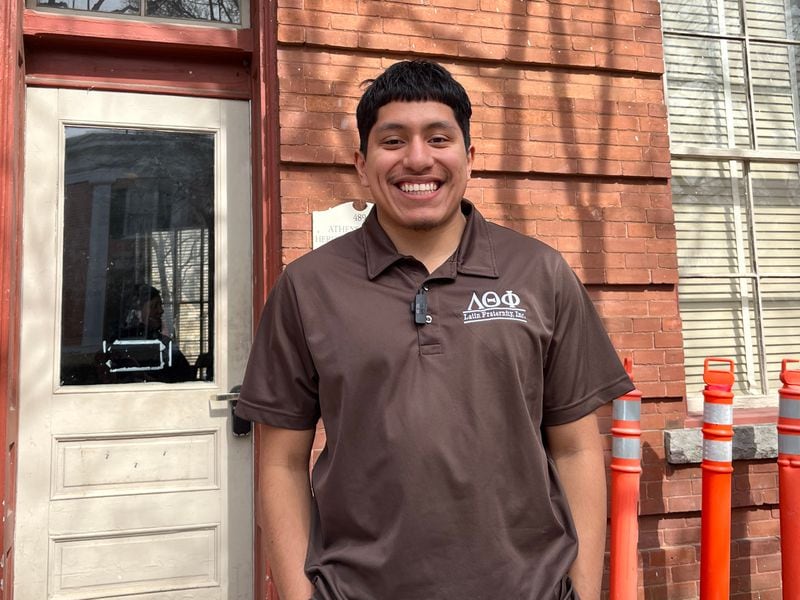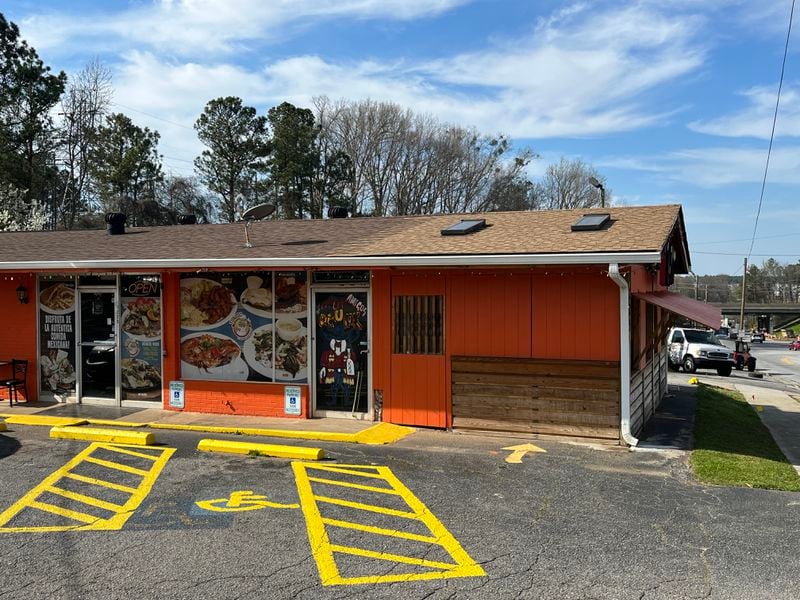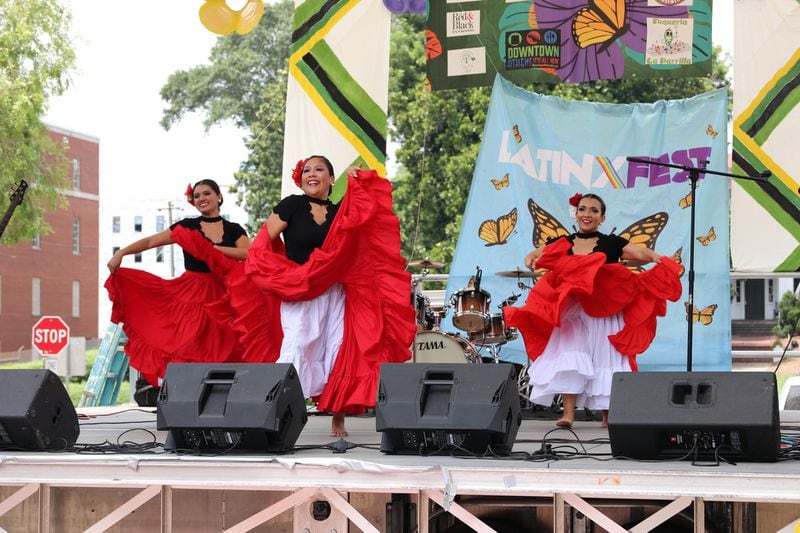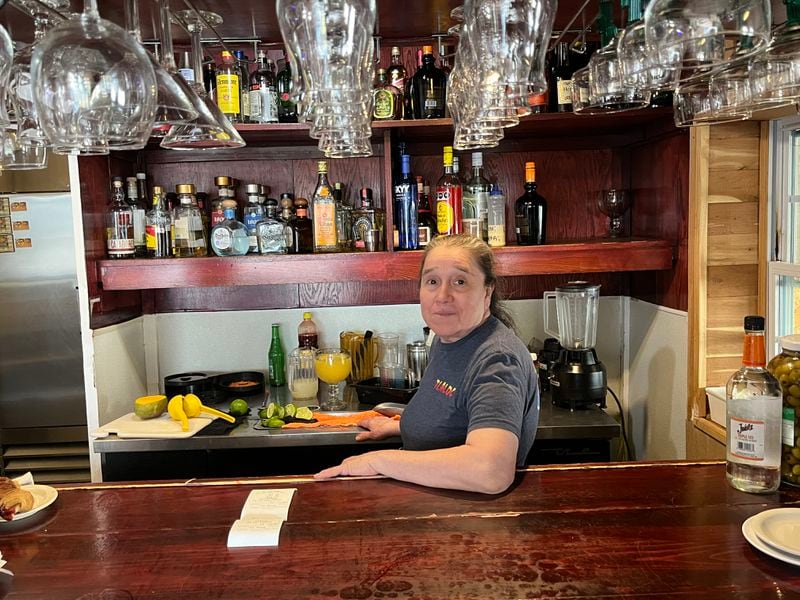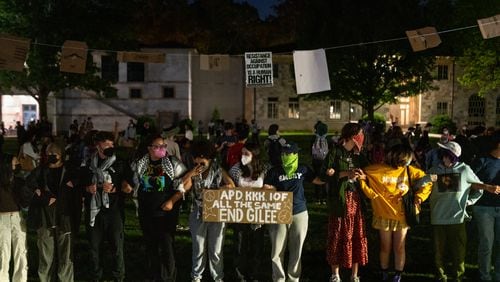Editor’s note: This story has been updated to reflect the outcome of the legislature’s votes on two immigration bills.
Teter Gaona spent most of her day on March 19, a Tuesday, making and receiving frantic phone calls.
That morning, local police began stopping drivers at two different checkpoints in the Athens area. The police department had warned days earlier that checkpoints were coming, but didn’t disclose their specific location, citing “officer safety.”
This put Gaona on high alert. An immigrant from Mexico, Gaona is the director of Dignidad Inmigrante en Athens (DIA), a nonprofit that serves the local immigrant population, for whom even incidental contact with law enforcement can represent a threat. Driving without a license is an offense that can put undocumented immigrants on a path to arrest, detention and deportation.
Gaona frames the stress of March 19 as part of the ongoing fallout of Laken Riley’s brutal killing on the campus of the University of Georgia a month prior. The tragedy shook Athens and reverberated around the nation, ratcheting up the temperature of an already heated national debate around immigration.
So on March 19, community members were calling Gaona to report police sightings, so she could help spread the word. Others, afraid to be caught by the patrols, got in touch because they needed help coordinating rides to pick up their children from school, or to go to the doctor.
“People are scared,” Gaona said.
Similar police checks have been conducted in the past, but Gaona says she doesn’t remember them lasting as many hours as those on March 19, or being located as close to immigrant neighborhoods.
“It’s worse than before.”
Legislative repercussions
The suspect in the nursing student’s death on the University of Georgia campus is Jose Antonio Ibarra, a Venezuelan national who illegally crossed the U.S.-Mexico border in 2022. His role in the case has led to increased political pressure on local police to collaborate with immigration enforcement and ensure undocumented immigrants who commit crimes are deported.
On the final day of the legislative session last week, lawmakers passed House Bill 1105, which would penalize sheriffs and jailers if they don’t work with federal immigration agents. Another bill would allow Georgia residents to sue local governments they believe are not following immigration laws. Now Gov. Brian Kemp must decide whether to veto the bills or sign them into law by a May 7 deadline.
On March 20, state lawmakers were visited in the Capitol by Riley’s father, Jason, who called on Kemp to “declare an invasion to detain and deport criminal illegals so we can prevent future families from those tragedies.”
Credit: Courtesy of Dignidad Inmigrante en Athens.
Credit: Courtesy of Dignidad Inmigrante en Athens.
The anti-immigrant rhetoric and legislation that has come out in the wake of the UGA slaying has been closely monitored by immigrants and their allies across the state, but few will have felt as directly implicated as Athens’ foreign-born population.
In recent decades, the growth of the Hispanic and immigrant community in Athens has kept up with statewide trends, with roughly one in 10 residents across Athens-Clarke County now identifying as Hispanic or foreign-born, according to the U.S. Census. In county schools, a quarter of the student body is Latino.
Since 2002, a group of Catholic nuns has helped run an after-school program for Hispanic children in a mobile home community in northeastern Athens. The program offers free tutoring services – provided by volunteer UGA students to a group of roughly 60 immigrant children — but the sisters also help coordinate monthly food distributions and rent assistance for newcomers. They also help pay for repairs to community members’ trailers. Sister Uyen-Chi Dang said that most of the families served by the program lack legal status in the U.S.
“There was a sense of fear” in the community in the wake of the UGA killing, she said. When news reports confirmed that the suspect in Riley’s death was a Venezuelan migrant who had unlawfully crossed the border, Dang said her “heart sank.”
The Hispanic community members closest to the tragedy were Latino students at UGA.
Diana Lopez Garcia, a senior, used to jog on the same trails where Riley was attacked. She says news of the nursing student’s death made her feel more vulnerable as a woman on campus — and she is now also worried she could become a victim of racism or harassment as a Latina.
“There was this weight on the community. I started seeing just troves of messages coming in like, ‘Be safe,’ ‘Close the doors,’ ‘Don’t go out at night alone,’” she said. “And that’s not because I’m a woman, but because I’m a woman of color.”
Lopez Garcia and another UGA underclassman, Alan Sosa-Alfaro, said Hispanic students were rankled by bigotry spread on YikYak, an anonymous social media app where college students can share posts with users in their vicinity. A particular post stood out to both Lopez Garcia and Sosa-Alfaro. They say it called for the hunting of immigrants.
Credit: Lautaro Grinspan
Credit: Lautaro Grinspan
‘Getting caught in the middle’
When customers walk through the door of her family’s Mexican restaurant, Florinda Arroyo greets them with a warm “buen día.” The Mexican immigrant opened the eatery roughly 15 years ago, when the Great Recession curtailed her husband’s income from his construction job. Painted bright orange, the restaurant is among many symbolizing the growing visibility of the immigrant and Latino community in Athens.
Every year since 2016, that visibility reaches its apex in the fall, when community members gather downtown to hold a festival celebrating Latino culture.
Credit: Lautaro Grinspan
Credit: Lautaro Grinspan
That gathering is a recognition of Hispanic immigrants’ contributions “helping build Athens,” Gaona says. According to Gaona, immigrants in Athens tend to take on physically demanding work that native-born workers don’t want to do, including meat-packing, construction and yard work.
“They’re physically risker jobs. Sometimes they’re overnight jobs, or early morning jobs. People get home exhausted,” she said. “I’ve always thought that our community was the one that worked the most, doing essential work, and the one that least asks for things, because we have this sense of dignity where we want to earn everything we get.”
When she first settled in Athens roughly 20 years ago, Gaona says she would get excited whenever she happened to run into a fellow Mexican in the city.
“Now, there are many of us,” she said, noting that there has also been an increase of people arriving from other parts of Latin America. “It’s pretty to hear the different accents.”
Credit: Courtesy of Dignidad Inmigrante en Athens.
Credit: Courtesy of Dignidad Inmigrante en Athens.
The growth of the community has created significant demand for legal services to help with immigration cases. Those with limited means have only one pro-bono provider to turn to: a legal clinic at the University of Georgia School of Law, run by Professor Jason Cade.
“We have a wait list a mile long,” he said.
Although Cade’s students work on a variety of cases, the clinic’s overarching ambition is to “keep families together.”
“We have the U.S. citizen children of the families that we serve very much in mind and are trying to do what we can to kind of reduce stress and stigma from their lives.”
Sister Margarita Martín Rodríguez, who helped found the free after-school program, says she has had to console crying children who are scared their parents will be taken away.
“These are American kids, because they were born here, and they are really afraid that they will lose their mom or their dad,” she said. “It really affects the children a lot.”
Sister Martín Rodríguez says community members haven’t complained of xenophobia or racism in the wake of Riley’s death.
“What they’re worried about is a change in policy,” she said, in reference to bills like HB 1105.
Arroyo, the restaurant owner, echoed those feelings.
“Some people talk about racism, but for us no, we haven’t experienced that,” she said. “But we heard that supposedly police will get stricter. … People are scared because many don’t have licenses. So they’re scared that they’re going to go out and they’ll get caught. … But rules are rules and they have to be followed.”
Credit: Lautaro Grinspan
Credit: Lautaro Grinspan
Gaona, the community leader, says she thinks Georgia lawmakers are focusing on immigration enforcement in the wake of Riley’s death to score political points.
“They’re forgetting about the real problem here, which is violence against women,” she said. “It’s all political. We know that this year is an election year and they’re competing against each other, but we end up getting caught in the middle.”
The Atlanta Journal-Constitution and Report for America are partnering to add more journalists to cover topics important to our community. Please help us fund this important work here.
About the Author
